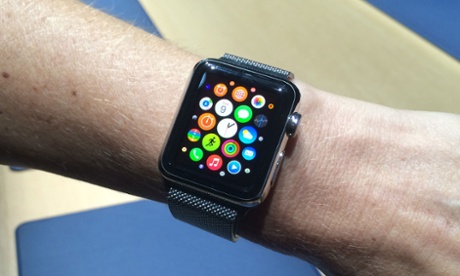
One of the first challenges for the Apple Watch is to persuade people who’ve gone bare-wristed for years due to owning smartphones that a watch – however smart – is necessary and desirable.
On that front, the omens are good. Apple’s first wearable devices are smart (in both senses of the word) and packed with potential, with a large community of iOS developers to draw on for app ideas to expand their basic features.
Yet for me, the feature that’s most obviously appealing – health and activity-tracking – is also the one that raises the biggest question related to another challenge for the Apple Watch: its battery life.
Apple very carefully didn’t mention battery life for its Watch family during the launch event. Current indications are that the devices will go for around a day, judging by the quote provided to Recode by Apple spokesperson Natalie Kerris:
“There’s a lot of new technology packed into Apple Watch and we think people will love using it throughout the day. We anticipate that people will charge nightly which is why we designed an innovative charging solution that combines our MagSafe technology and inductive charging.”
The key phrase there, I think, is “throughout the day”. Apple may be working hard on increasing the battery life of its first watch, but in its current form it’s seemingly envisaged as a daytime device. Slip it off your wrist at bedtime and pop it on the charging mechanism, ready for another day tomorrow.
That’s not an onerous usage pattern – stray thought: at some point, will the iPhone move to a similar inductive charging system? – but it does have implications for the Apple Watch’s health features.
In the daytime, its Activity app will measure your calories burned, “brisk activity” and how often you stand up, feeding all this data back to your iPhone’s Fitness app – and via the company’s HealthKit system, to other approved third-party apps too.
Meanwhile, the watch’s separate Workout app tracks your specific fitness activities: running, cycling and so on. There’s the promise of motivational features too, to encourage you to set fitness goals and stick to them.
What’s missing, for now, is what you do at night. Sleeping. While fitness trackers from companies like Fitbit and Withings are designed to be worn at night too, tracking your sleep patterns through your movements.
They can do this, because they’re quite focused devices: they track activity, and transmit the data to your smartphone using low-power Bluetooth technology. Their batteries go for a week or more, and the usual charging pattern is to plug them in when you’re not moving much – at work, for example, or lounging about at home.
The greater power demands of a smart watch – any smart watch, not just Apple’s – mean daily charging may well become the norm, which in turn means through-the-night sleep tracking will be a difficult feature to implement.
Thinking about my own health, sleep (or rather the lack of it) feels as important a part of the picture as daytime activity. If you’re going to go whole-hog on this quantification of the self business, you may well need a separate device for sleep tracking.
(This may be an opportunity for some inventive hardware startups to make better dedicated sleep-trackers than the night-time features in devices made by Fitbit and its rivals, of course.)
Even so, there’s a growing awareness that personal health is about shut-eye, not just steps and workouts.
The constraints on smart watch battery life make these devices excellent for the latter, but not so useful for the former – with no obvious answer to that challenge immediately in sight.
• Unfitbit: When fitness tracking goes wrong
• Stuart Dredge’s travel and accommodation was paid for by Apple. Editorial is completely independent.

